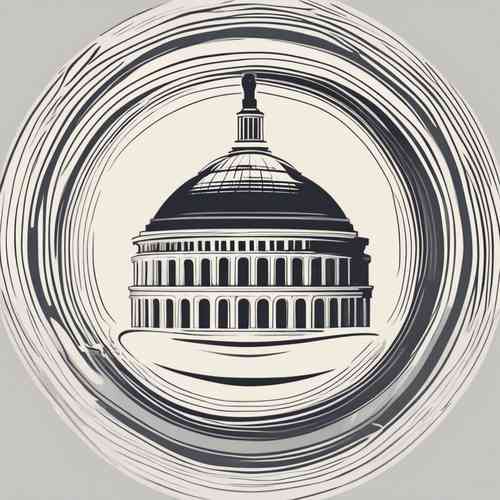- Published on
SNAP Benefits on the Brink: Lawmakers Face Intense Pressure Amid Deepening Government Shutdown
- Authors

- Name
- Juno Ryelie

SNAP Benefits on the Brink: Lawmakers Face Intense Pressure Amid Deepening Government Shutdown
With the federal government shutdown now approaching a month, the food security of 42 million Americans hangs in the balance as funding for the Supplemental Nutrition Assistance Program (SNAP) faces imminent suspension. A high-stakes political battle rages in Washington, with Republicans and Democrats exchanging accusations while a bipartisan bill, offering a potential lifeline, remains stalled in legislative gridlock.
Event/Topic Overview
As Congress remains deadlocked over a funding resolution, the U.S. Department of Agriculture (USDA) is poised to halt SNAP payments, potentially leaving millions without essential food assistance. The prolonged government shutdown has ignited a fierce blame game, with Republicans dubbing it the "#SchumerShutdown" and Democrats highlighting unresolved legislative priorities. Amid this standoff, the "Keep SNAP Funded Act"—a targeted piece of legislation—has emerged, garnering bipartisan support but struggling to reach a vote as the broader impasse continues.
Key Highlights & Standouts
The political drama has intensified, marked by impassioned speeches, public appeals, and strategic legislative maneuvers. While leaders trade criticisms, time is running out for families who depend on SNAP benefits to put food on the table.
The Bipartisan Lifeline: The "Keep SNAP Funded Act"
A crucial piece of legislation, the "Keep SNAP Funded Act," offers a path forward. Introduced by Republican Senator Josh Hawley, this bill would authorize the USDA to continue issuing SNAP payments despite the shutdown and retroactively cover any missed benefits since September 30, 2023. In a rare display of unity, the bill has rapidly gained cosponsors, jumping from 11 to 29 senators, including prominent Republicans like Susan Collins and Democrats such as Cory Booker and Elizabeth Warren.
The Cross-Chamber Plea
The push for a solution extends beyond the Senate. Democratic Congressman Ro Khanna has publicly urged Republican Speaker of the House, Mike Johnson, to reconvene the House of Representatives for a vote on the SNAP funding bill. Addressing Senator Hawley directly on X, Khanna emphasized the urgent impact: "I'll vote for your bill to extend SNAP benefits so 16 million kids don't go hungry the day after Halloween." This highlights the widespread concern over the potential funding lapse.
Republican Frustration and the Senate Floor Showdown
On the Senate floor, frustration has reached a boiling point. Senate Majority Leader John Thune delivered a fiery speech, accusing Democrats of repeated obstruction. According to Thune, Republicans have attempted to reopen the government 13 times, only to be blocked by a Democratic filibuster each time. "This isn’t a political game. These are real people’s lives we’re talking about," Thune asserted, reflecting a growing sentiment among his colleagues that Democrats are holding the government hostage for political leverage.
The Democratic Filibuster and Broader Demands
Democrats maintain that their opposition is not unfounded. While a House-approved measure to reopen the government has reached the Senate, it has stalled, requiring 60 votes to overcome a filibuster. Democratic senators have withheld their support, arguing that current funding proposals fail to address other critical issues, notably the pending expiration of healthcare subsidies under the Affordable Care Act. This strategic maneuver is central to the legislative gridlock, preventing both a broader resolution and a vote on SNAP.
Public & Critical Reaction
As the shutdown persists, public figures and advocacy organizations are intensifying pressure. Senator Josh Hawley articulated in an op-ed for The New York Times, "There is no reason any of these residents of my state — or any other American who qualifies for food assistance — should go hungry... there is no cause, and no excuse, to deny aid to the poor entirely." Meanwhile, Speaker Mike Johnson expressed his exasperation, stating, "Look, I think Chuck Schumer and Hakeem Jeffries are IRREDEEMABLE at this point!" The rhetoric has become increasingly desperate as public support for the shutdown wanes. Some reports indicate a shift in public opinion, with Republicans allegedly improving their standing while Democrats are in their "WORST position they've been in 20 years." This pressure is further amplified by unions representing government employees, such as the American Federation of Government Employees, which have demanded an end to the shutdown.
Behind the Scenes / Background
SNAP is a federally funded, state-administered program. Annually, Congress must approve a budget that enables the USDA to disburse funds to states, which then distribute benefits via EBT cards. When congressional funding lapses, the USDA can operate on existing reserves for a brief period. However, once those funds are depleted, payments to the 42 million Americans enrolled in the program cease until Congress intervenes. The current legislative stalemate hinges on the Senate filibuster, where the Republican 53-47 majority is insufficient to reach the 60-vote threshold needed to advance the funding bill without Democratic support.
Significance & What's Next
This crisis profoundly underscores how partisan gridlock impacts the lives of everyday Americans. The potential suspension of SNAP benefits represents a critical failure to protect the country's most vulnerable populations, transforming a vital food assistance program into a political bargaining chip. The immediate future of SNAP funding remains uncertain. While the "Keep SNAP Funded Act" has been formally referred to the Senate Committee on Appropriations, its path forward is unclear. Resolution depends on whether Speaker Johnson heeds the bipartisan call to bring the House back for a vote, or if Senate Democrats and Republicans can reach a compromise on a broader government funding package. With the deadline fast approaching, the urgency for Washington to find a solution has never been higher.
The standoff over SNAP benefits is a critical test for a divided Congress, with the well-being of millions hanging in the balance. As the political blame game continues, the urgent need for a resolution grows more pressing each day. Follow the latest developments on the government shutdown and the legislative efforts to protect vital food assistance for American families.